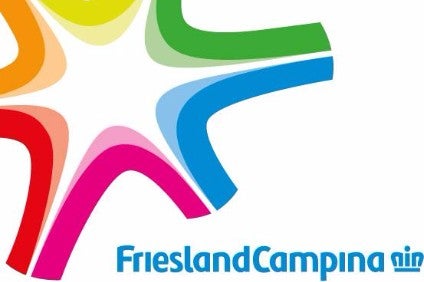
FrieslandCampina, the Dutch group among the world’s largest dairy companies, has insisted it is better to “disrupt ourselves” then be disrupted amid the rapid change being seen in the packaged food industry and is looking to get products to market more quickly, in part through an in-house start-up programme.
The owner of Milner cheese and Yazoo milkshakes has set up an internal accelerator, dubbed Milkubator, to develop and launch products faster. Under the Milkubator, FrieslandCampina employees pitch ideas to senior management, which then supports the selected ideas with funding and with training from internal and external coaches.

Discover B2B Marketing That Performs
Combine business intelligence and editorial excellence to reach engaged professionals across 36 leading media platforms.
Speaking at the Arena International Dairy Innovation Summit in Amsterdam, Aniruddha Kusurkar, the global commercial director for FrieslandCampina’s consumer-facing dairy business, said the notion of innovation was changing, which posed a threat to companies the size of the co-op and its peers.
“If you look at the last two or three decades, we’ve been brought up on this diet of synergies and scale and how important it is to be big. We are now entering an era of entrepreneurship,” Kusurkar, who joined FrieslandCampina after more than a decade at Unilever, said. “The whole definition of scale is getting redefined. That’s a challenge. We all joined big companies, with big investments. We had big visions, spend big. That’s how we cut our teeth. This is almost a tsunami that has come into our world of food.”
Kusurkar suggested it was more important to get a new product or service to market quickly than necessarily outdo your peers on quality. He also said there was now more to innovation than developments on products.
“The definition of innovation has changed; it’s not about who has the best innovation, it’s about who gets there first,” he said. “There are new business models that are coming. Innovation is no longer about how can my yogurt be better, or how can I make a new flavour. Yes, we still need quite a bit of that but, really, innovation is starting to happen in how existing products reach you – and that’s because of technology.”

US Tariffs are shifting - will you react or anticipate?
Don’t let policy changes catch you off guard. Stay proactive with real-time data and expert analysis.
By GlobalDataFrieslandCampina’s Milkubator scheme was launched in September 2017 and two products have been launched – a direct-to-consumer cheese business Firma Kaas and a lower-calorie ice cream brand called Melt.
Kusurkar insisted Milkubator was not “a silver bullet” but said the initiative was seeing FrieslandCampina work on innovation more quickly, with the selected colleagues forming a start-up within the organisation and carrying out work that could normally take 18 months in 13 weeks.
“I take the analogy of a start-up because a start-up is an independent, fully-functioning business. It’s not a project. It’s a business with its own P&L,” Kusurkar said. “Most start-ups don’t have the luxury of running their idea as projects. Most of them would want to have their first customer as early as 13 or 14 weeks. The reason being they start to run out of cash. That’s almost the state of need we need to create for these start-ups. These start-ups are put into an intense programme. This has been as much of a change of mindset programme, as much as it has about skills.”
Companies of a similar size and scale to FrieslandCampina “need two engines to innovation”, Kusurkar added: “The first innovation is on the core part of the business. How do you accelerate new business? How do we as a business learn to accept more risk, to go their faster? The other engine is how can we learn to disrupt ourselves? There are a whole bunch of people sitting in garages around the world trying to disrupt us. It makes all the more sense to learn how they do it and what’s going to be the impact on us? If we’re going to be disrupted by someone, it’s better [for it to be] by us.”
Arla Foods reworks innovation process amid industry “disruption”





